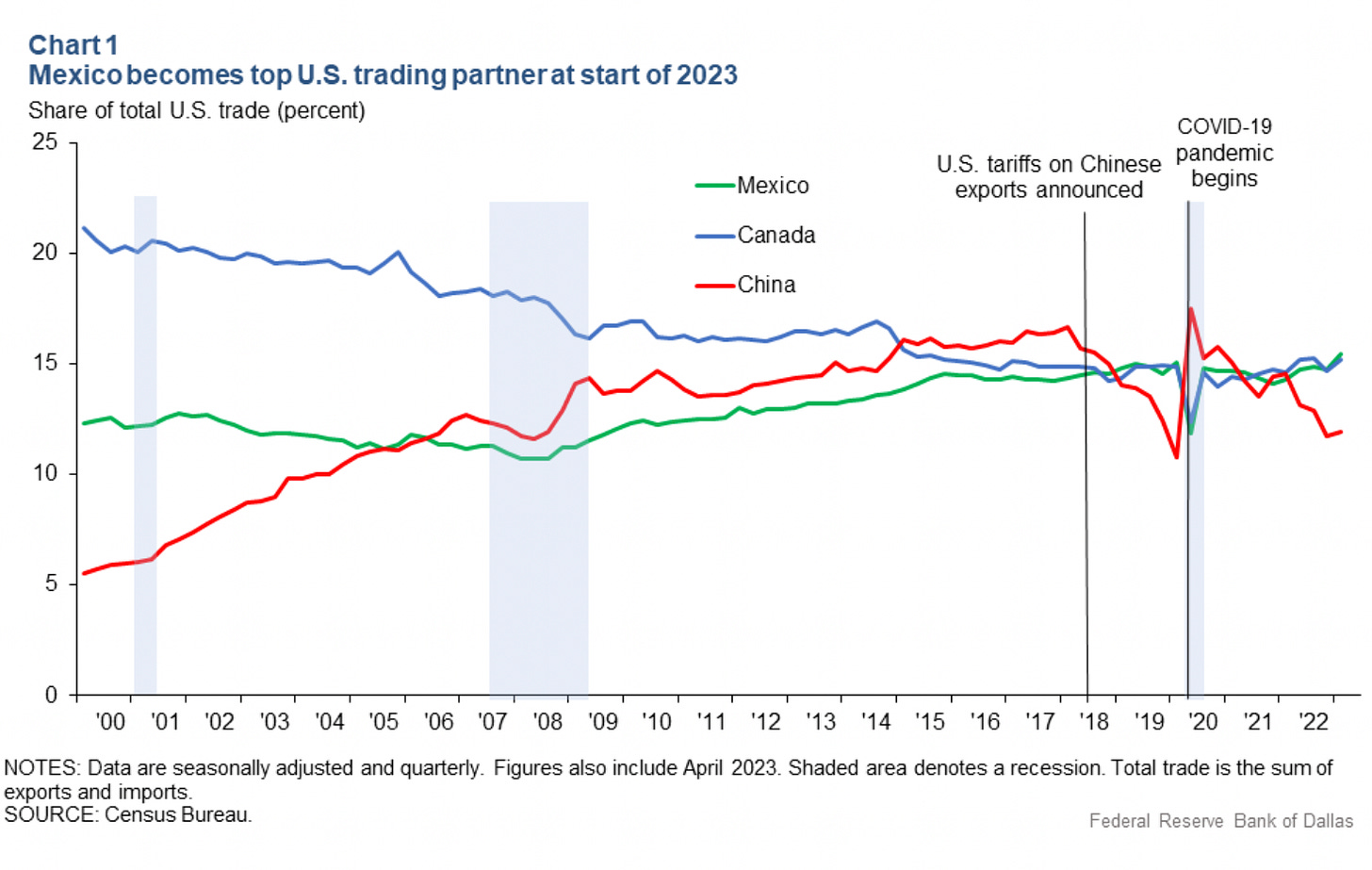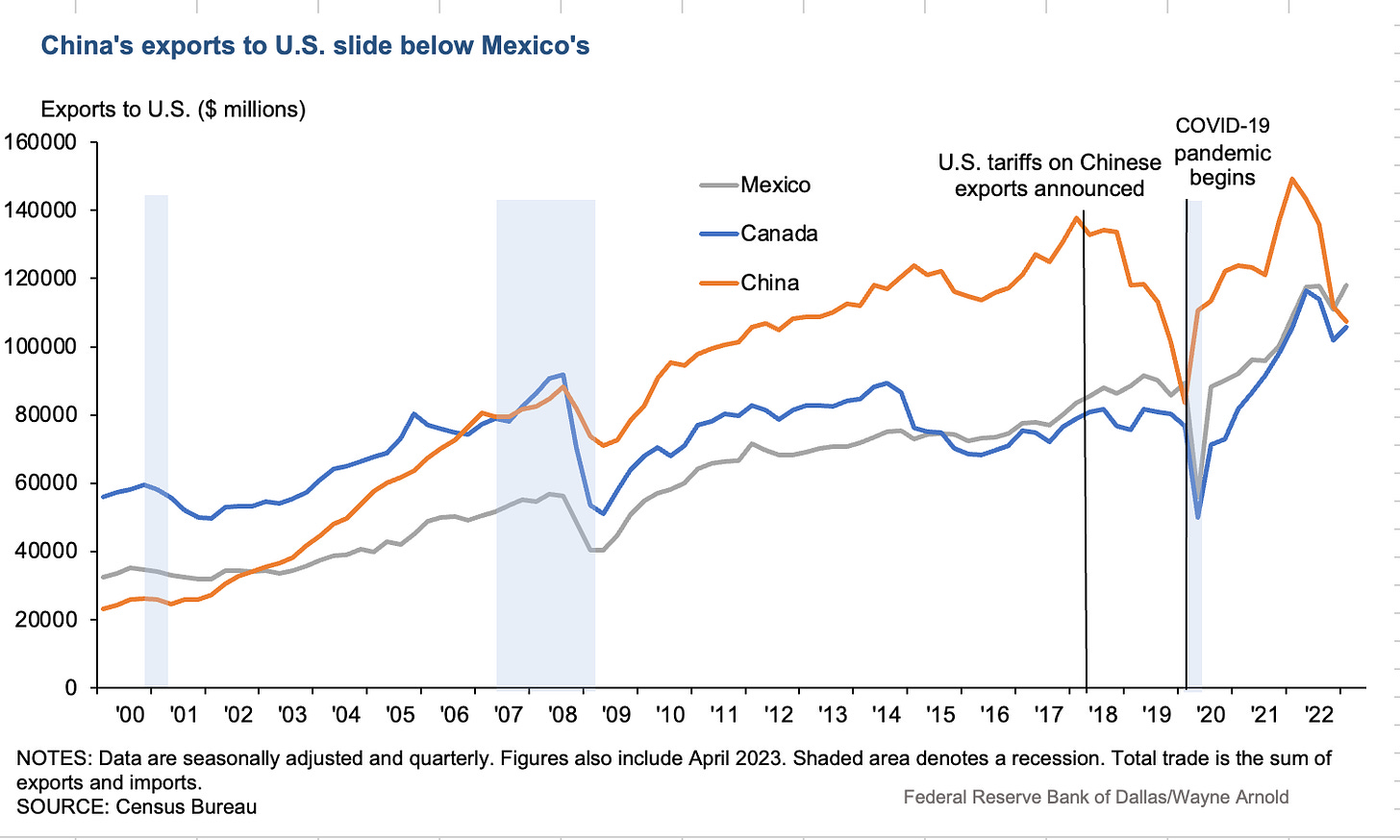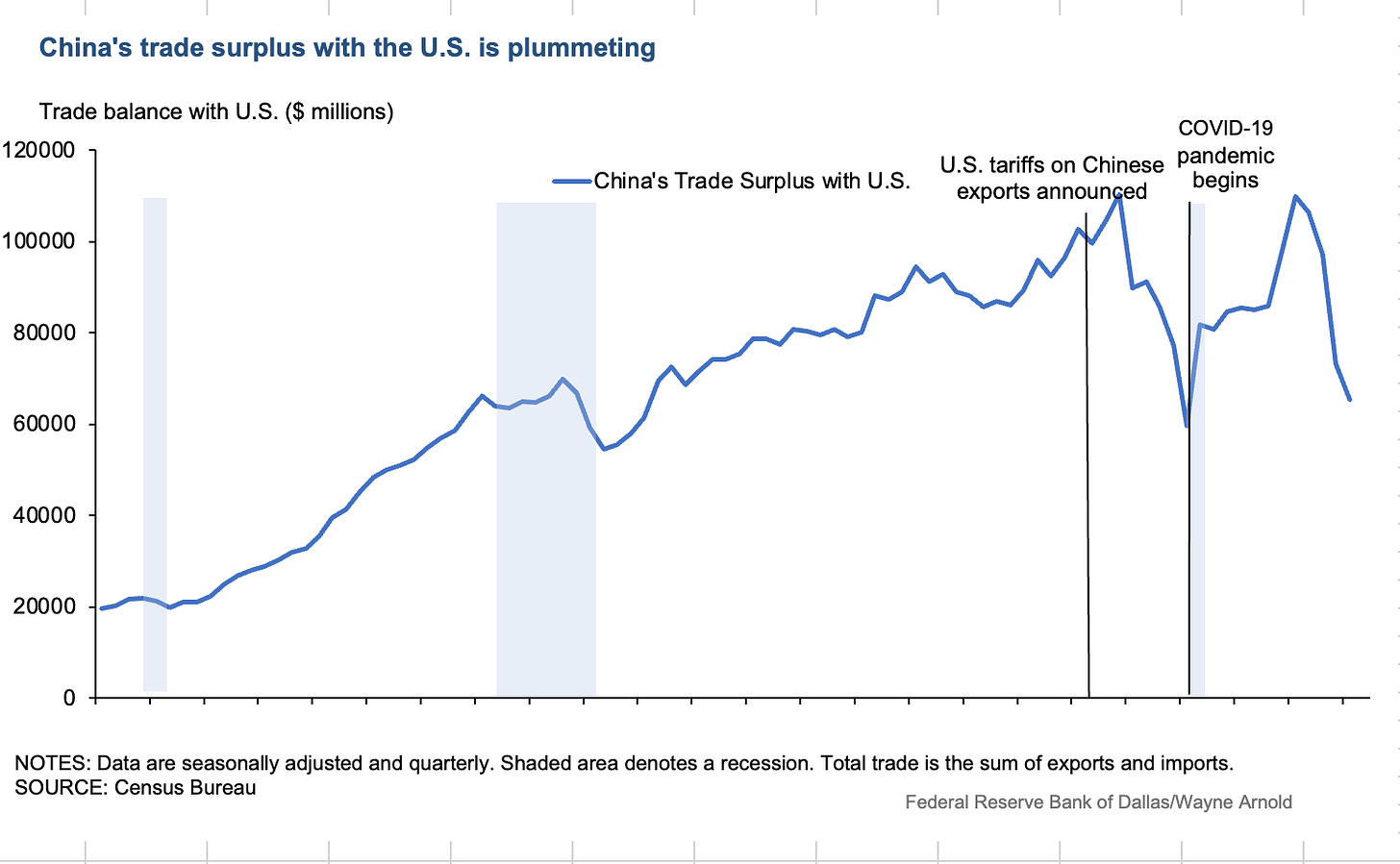Mexico topples China as America’s top trade partner; US attack on China’s export engine hits an economy already battling domestic ills
(Originally published July 13 in “What in the World“) China has been toppled by Mexico as America’s largest trading partner, as Washington looks to punish China economically and shelter U.S. supply chains from the fallout of its escalating feud with Beijing.
According to data from the U.S. Census Bureau compiled by Luis Torres, an economist at the Federal Reserve Bank of Dallas, bilateral trade between the U.S. and Mexico in the first four months of this year represented more than 15% of all U.S. foreign trade, compared with 12% for U.S.-China trade.

The downturn is largely thanks to an economic war against China by the U.S., directed by the White House and executed in large part by the tiny Bureau of Industry and Security. Amid deteriorating relations between Beijing and Washington, in 2018 former President Donald J. Trump imposed tariffs on roughly two-thirds of Chinese imports. China retaliated with its own tariffs on U.S. imports.
Supply-chain disruptions during the pandemic also prompted many U.S. companies to start diversifying their supply chains. But Washington is now actively encouraging importers to “re-shore” supplies away from China and strangle China’s access to top U.S. technology.
The shift is part of an effort to contain China’s growth, de-couple the world’s two largest economies and punish Beijing for a range of perceived sins, from unfair trade practices and allegations of human rights abuses to aggressive military moves against Asian neighbors and espionage against the U.S. government and companies.
In the latest caper, Microsoft revealed this week that Chinese hackers had in May launched a broad attack on U.S. government computers ahead of Secretary of State Antony Blinken’s June trip to Beijing, and specifically tried to infiltrate email accounts at both the Commerce and State Departments, along with 25 other organizations in the U.S. and abroad. While the hackers haven’t been identified, they are believed to be affiliated with China’s intelligence services.
China’s exports to the U.S. have fallen sharply, dropping by 25% in the first quarter of 2023 compared with the same period of 2022, the second consecutive 25% quarterly decline. That’s providing lower income to China’s laboring economy and slashing China’s overall trade surplus with the U.S.


China seems intent on making matters worse, however. It has just imposed a new national security law that may further deter foreign companies from doing business there at a time when its economy desperately needs foreign investment to offset slowing growth and rising debt.
The new Law on Foreign Relations, which went into effect July 1, is a broad piece of legislation aimed at creating the legal basis for Beijing to impose the kind of extraterritorial commercial sanctions Washington imposes to enforce its own foreign policy on companies at home and abroad. Analysts reviewing the new law, however, say it is so vague that it is likely to add to the risk and uncertainty already troubling foreign investors about doing business in China.
The law appears to be the latest in efforts by Beijing to restrict foreign businesses in China, including recent crackdowns on foreign consultants for alleged espionage and on the dissemination of financial data offshore. In April, China passed a revised its Counter-Espionage Law, which also took effect July 1. While the revised law appears mainly aimed at outlawing cyberattacks, it also stipulated that all “documents, data, materials, and items related to national security and interests” were considered on equal legal footing as official state secrets, without offering a clear definition of what would constitute “national security and interests.”
According to Reuters, the revised law empowers authorities to seize “data, electronic equipment, information on personal property” and to stop people from entering or leaving the country as part of any investigation into violations. Foreign businesses say they now can’t tell what economic data, market research and other financial data in their possession might end up falling afoul of the law.
The confusion echoes the uncertainty following China’s passage in 2016 of a broad Cybersecurity Law that prohibited the export of any sensitive personal data on Chinese individuals.
Even after ending its Covid lockdowns, foreign direct investment into China in the first three months of 2023 climbed 4.9% from the same period of 2022. That mirrors negative sentiment in business overall: private investment between January and May was static, falling 0.1%, as corporate profits dropped by more than 21%, according to China’s National Bureau of Statistics.